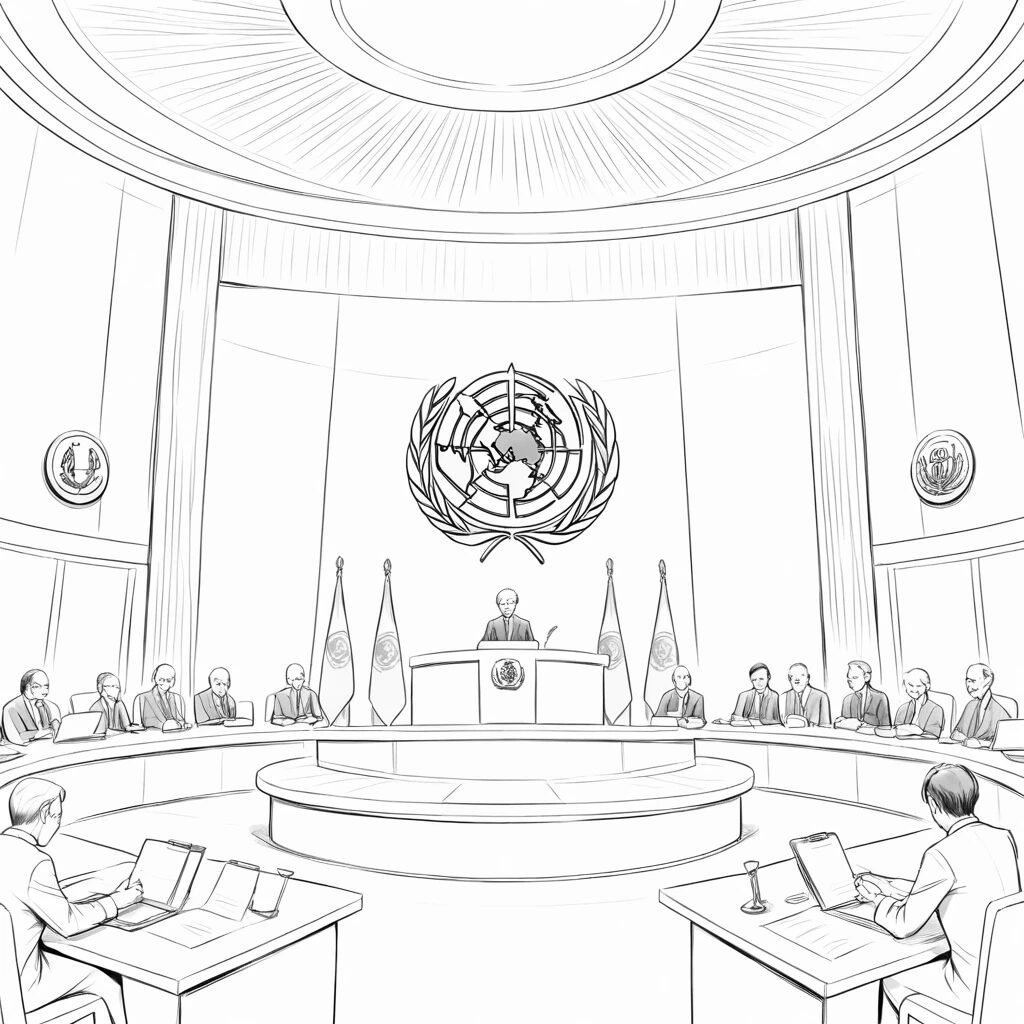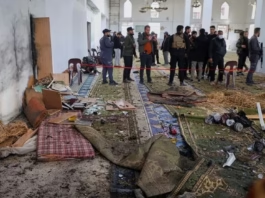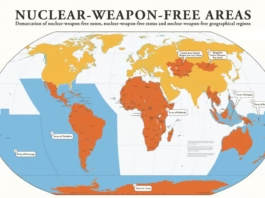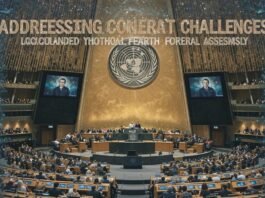Understanding the Role of the Special Envoy
The role of the Special Envoy is a vital aspect of modern diplomacy, as they serve as representatives tasked with addressing specific international issues. Appointed by governments or international organizations, Special Envoys are often selected based on their expertise, experience, and diplomatic skills, allowing them to navigate complex political landscapes effectively. Their appointment process typically involves a formal nomination that is then confirmed by relevant parties, ensuring that the envoy embodies the necessary qualifications to undertake their responsibilities.
Special Envoys play several key roles in diplomatic missions; they often act as mediators in conflict situations, advocates for humanitarian aid, or representatives in negotiations surrounding crucial global issues such as climate change, human rights, or security. Their ability to engage with various stakeholders—governments, non-governmental organizations, and civil society—enables them to foster dialogue and collaboration across diverse groups. For instance, the role of Special Envoys in peace negotiations can be critical, as they facilitate communication between conflicting parties, promoting understanding and working towards mutually beneficial solutions.
In the context of international relations, the importance of Special Envoys cannot be understated. They not only serve as a bridge between nations but also help in shaping policy responses to emerging dilemmas. Examples abound, such as the Special Envoy for Climate Change, who collaborates with countries to implement sustainable practices and commitments under international agreements. This demonstrates how specialized roles within diplomacy are increasingly necessary for addressing multifaceted global challenges. Overall, the function of a Special Envoy represents a forward-thinking approach to international cooperation and conflict resolution, exemplifying the adaptability required in contemporary diplomacy.
Key Insights from the Assessment
The assessment conducted by the special envoy presents a comprehensive analysis of the current situation, highlighting crucial challenges and opportunities that shape the region’s landscape. One of the primary challenges identified is the prevailing political instability, which undermines governance and hampers progress toward sustainable development. The envoy underscores the need for strengthening democratic institutions to foster political resilience and encourage citizen participation in governance. This stability is vital for addressing underlying socio-economic issues that the region currently faces.
Another significant finding relates to economic vulnerabilities. The special envoy points out that economic dependency on a limited range of sectors exposes the region to external shocks. Diversifying the economy through strategic investments in sectors such as renewable energy, technology, and agriculture can create new opportunities while reducing risks associated with economic fluctuations. Furthermore, enhancing infrastructure development is highlighted as a key opportunity for fostering economic growth and connectivity, which can ultimately lead to improved living standards for the populace.
Additionally, the assessment emphasizes the importance of cross-border cooperation in addressing shared challenges, such as climate change and regional security threats. The envoy’s recommendations advocate for collaborative frameworks between nations, aimed at pooling resources and expertise to tackle these pressing issues effectively. Engaging local communities in the decision-making process is also urged to ensure that interventions align with the people’s needs and priorities.
Ultimately, the special envoy’s evaluation serves as a vital framework for stakeholders, outlining the necessary interventions to navigate the complex landscape of challenges and opportunities. Understanding these key insights is imperative for formulating strategic responses that promote stability, economic diversification, and cohesive governance in the region.
Implications of the Assessment on Policy
The recent assessment conducted by the special envoy presents a comprehensive analysis that holds significant implications for policy decisions across various levels of governance. Understanding these findings is crucial for fostering a cohesive response from involved governments, the international community, and relevant organizations. The envoy’s insights shed light on the complexity of the geopolitical landscape, enabling policymakers to craft strategies that are both informed and effective.
One of the primary reactions anticipated from involved governments will likely revolve around the assessment’s recommendations for diplomatic engagement. Policymakers are encouraged to consider these recommendations carefully, as they are pivotal in shaping dialogue and negotiations. The special envoy’s findings often underscore the need for collaborative efforts aimed at addressing pressing issues, thereby prompting governments to align their policies with a focus on peace and stability. This collaborative approach can pave the way for groundbreaking initiatives that promote mutual understanding and cooperation among nations in the region.
Moreover, the international community, including global organizations and multilateral bodies, can leverage the special envoy’s findings to bolster their strategic frameworks. By integrating these insights into their current policies, they can enhance coordination efforts and avoid duplicative initiatives. Such synchronization is vital, as it not only optimizes resource allocation but also strengthens the collective impact of international responses to the highlighted challenges.
Furthermore, policymakers must also remain adaptable, as the landscapes of international relations can shift rapidly. Utilizing the special envoy’s assessment as a foundational tool allows for the negotiation of policies that are more resilient to such changes. Overall, the implications of the assessment could be far-reaching, potentially ushering in a new era of diplomacy characterized by informed decision-making and cooperative dialogue.
Looking Ahead: Future Directions
As the findings from the special envoy’s assessment are analyzed, it is imperative to consider the implications for the future landscape. The special envoy’s report has illuminated significant insights that can guide the next steps for both the envoy and the associated stakeholders involved in the ongoing situation. Key among these is the identification of potential areas for negotiation, which may pave the way for conflict resolution and sustainable peace.
Future directions will require careful deliberation and strategic planning. Stakeholders must prioritize the feedback from the special envoy’s findings while remaining adaptable to the evolving dynamics of the situation. Anticipated follow-up actions may involve diplomatic engagements, confidence-building measures, and collaborative platforms for dialogue. These initiatives will be critical in addressing underlying tensions and fostering an environment conducive to constructive discourse.
Yet, it is essential to recognize ongoing challenges that could hinder progress. Historical grievances, power asymmetries, and external influences will continue to play a significant role in shaping the trajectory of negotiations. Stakeholders must approach these challenges with a commitment to inclusivity, ensuring that all voices, especially marginalized communities, are heard and represented in the discourse. This practice not only enriches the negotiating process but also enhances the likelihood of lasting resolutions.
Furthermore, as the situation unfolds, various players—be they local, regional, or international—will have critical roles to play. Their actions and strategies will influence the course of events, making it essential for all parties to remain engaged and proactive. By fostering collaboration, exercising diplomacy, and maintaining open channels of communication, the potential for positive outcomes increases. In this complex landscape, strategic foresight and adaptability will be indispensable as stakeholders navigate the path ahead.




